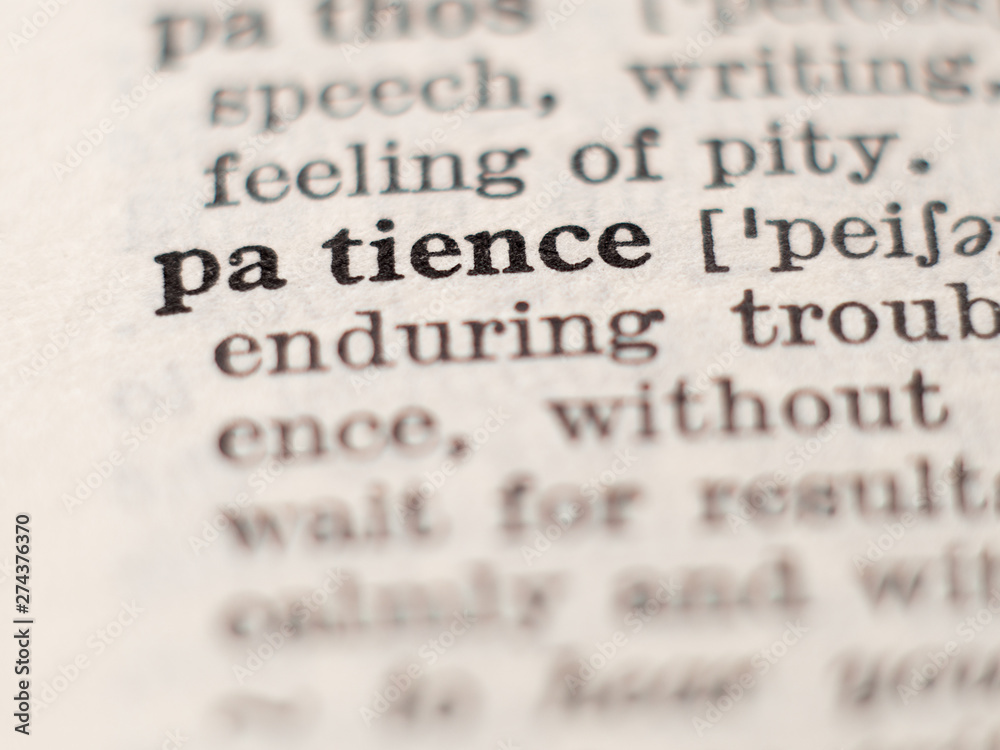The Art of Patience: How to Survive the Caregiving Short Fuse
It really is an art, isn’t it? Sometimes, though, I hate to admit it, I am completely devoid of virtue. Initially, I don’t care. When I am done, I am done; I have a short fuse. I don’t like it. It is actually one of my biggest flaws. I thought as I grew older I would develop more patience, but at 52, I am beginning to think that may not be the case.
A lack of patience and a short fuse can indicate an inability to tolerate delays, setbacks, or frustrations, often leading to a rapid display of anger or irritation. This isn’t just a personality quirk; it’s a measurable symptom of emotional overload. This can stem from various factors, including stress, fear, anxiety, fatigue, or underlying emotional issues. My answer is yes to all of these. I have much more stress, fear, anxiety, and fatigue than I have patience.
So what can be done? Since we can’t magically get more hours of sleep or eliminate the daily demands, we have to change the way we react to them.
Phase 1: The Essential Foundation – Awareness and Recognition
Many people confuse awareness and recognition, but they serve different purposes when dealing with an emotional reaction.
- Awareness: This is simply knowing that something exists. We are aware of our impatience—it’s definitely the first step. Becoming aware of our impatience allows us to understand that it is a specific, separate emotion from the frustration or the immediate trigger.
- Recognition: Once aware, we can then identify triggers and patterns in our impatience. This involves tracking when it’s most likely to occur (Is it during medication time? After a bad night’s sleep? When paperwork piles up?) and what situations tend to prompt it. This recognition allows us to begin acknowledging the true source of our impatience, whether it’s a specific situation, a person, or even our own unrealistic expectations.
More often than not, as a caregiver, the short fuse is a glaring, red-flag sign of caregiver burnout. If you notice your patience decreasing rapidly, it’s time to check in with yourself and look for ways to mitigate the overall stress load.
Phase 2: Cognitive and Behavioral Interventions
Once you recognize the fuse is short, you need immediate, in-the-moment tools to prevent the explosion.
1. Reframing Your Thoughts with Mindfulness
Challenge the immediate, negative thoughts that contribute to impatience and reframe them in a more positive way. For me, this involves a big dose of mindfulness. I begin by questioning my thoughts: “Is this sudden feeling of urgency an accurate interpretation of the situation?” Usually, the answer is no; I just have too many other things going on in my mind.
In that moment, I force myself to view the situation differently. I use self-talk to tell myself: In the grand scheme of things, this specific irritation doesn’t really matter. These are all silly constructs I had in my head and serve no purpose to my situation. This mental distance is the key to creating space between the trigger and the reaction.
2. Deploying Immediate Coping Mechanisms
You need physical actions to interrupt the cycle of rising anger. Employ techniques like deep breathing, mindfulness exercises, or self-soothing statements to manage impatience and deal with our frustrations.
I have gotten to the point where I talk to myself out loud. I no longer care what other people think, since this is my sanity on the line! When I am running out of patience, I will stop, take many deep cleansing breaths, look and understand the situation, and usually say something out loud to the effect of “It’s fine, everything is fine. There is nothing I can do but accept this.” I will then force myself to redirect my thoughts or actions to something less triggering.
Phase 3: The Long-Term Practice of Acceptance
To truly lengthen the fuse, we must address the root causes of our constant frustration, which are usually control and expectation.
1. Adjusting Expectations
We must recognize that not everything can be controlled and that some things take time. I am a control freak, and often my expectations are not realistic. I have worked hard to accept that when I don’t have control over an issue, all I can do is accept it and learn to deal with it. There are no other choices in the moment, and fighting reality only creates internal suffering.
2. Practicing Empathy as a Tool
I find empathizing to be a great tool for dealing with my own caregiving burnout. When I stop to think of my husband and all he lost, and all the frustration he is feeling with his own limitations, it allows me to tap into a new, deeper source of patience. It shifts the focus from my inconvenience to his suffering. This compassion can often instantly de-escalate my own short fuse.
I like to see patience as an art, like mindfulness or finding glimmers of hope https://thecaregiversnook.com/finding-daily-glimmers/. I consider them to be the art of the soulfulness. Make a conscious effort to delay gratification and focus on the long-term benefits of waiting, because good things do come to those who wait. And once you get “it,” whether it’s a moment of peace or a successful outcome, revel in “it” and pat yourself on the back for a job well done in dedication to the art of patience.



